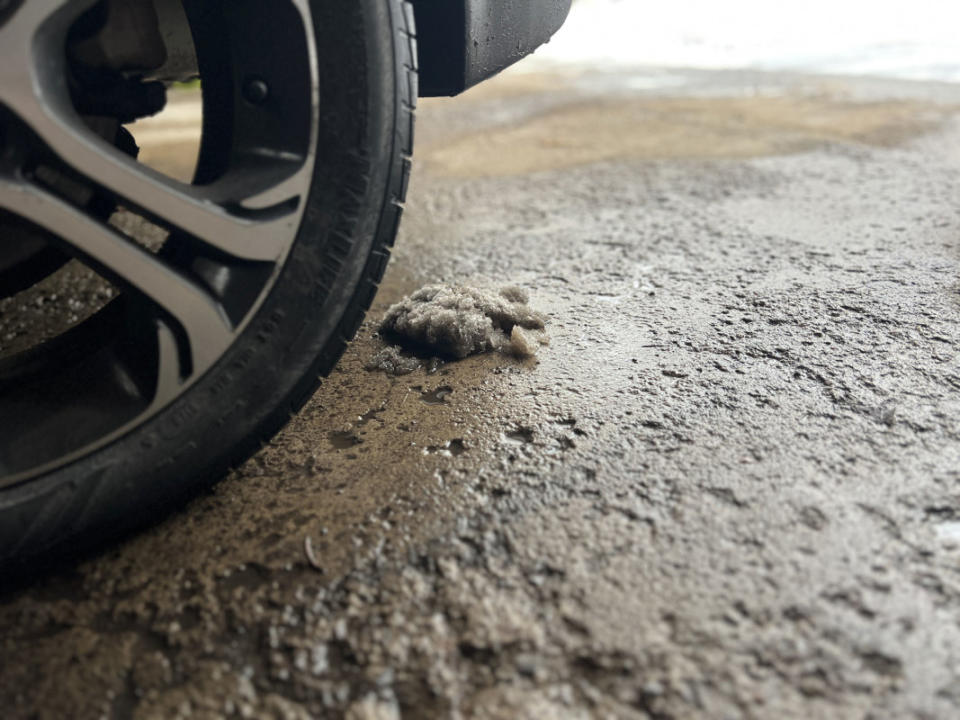Is Rock Salt Ruining Your Driveway, Garage, and Sidewalks?
During bouts of harsh weather, we're forced up against the challenges of icy and slippery surfaces. To combat the hazards of winter weather, many homeowners turn to rock salt (sodium chloride) as a go-to de-icing agent. While rock salt is a common ice melter, it's a double-edged sword. Its melting process can lead to potential damage on driveways, sidewalks, and even the inside of your garage.
A Negative Impact on Driveways
Your driveway bears the brunt of winter weather, enduring freezing temperatures, snow accumulation, and the repeated application of your deicer of choice (which is, in many cases, rock salt). While it's a quick and efficient solution for melting ice, rock salt damage is like no other.
Concrete driveways are susceptible to the effects of rock salt. Deicing salt can permeate the surface, leading to a chemical reaction with the minerals in the concrete surfaces. This process, known as chemical weathering, weakens the structure over time, making it prone to cracks and other forms of damage. The freeze-thaw cycle further exacerbates the situation, as water expands when it freezes, causing additional stress on the concrete.
For asphalt driveways, the impact is less severe but still significant. Driveway salt can accelerate the deterioration of asphalt, leading to the formation of cracks and potholes. The corrosive nature can also affect any metal components in or around the driveway, such as drainage grates or edging.
The Downfalls of Using Rock Salt on a Sidewalk
Sidewalks, being in constant contact with foot traffic and exposed to the elements, are another casualty of rock salt use. Just as with driveways, the repeated application during cold weather can contribute to the deterioration of both concrete and asphalt sidewalks. The combination of foot traffic and salt can expedite the wear and tear on concrete sidewalks. Cracking and surface pitting may occur, creating trip hazards and diminishing the aesthetic appeal of your property.
The extra water from melted snow contains high salt levels, and poses a threat to aquatic ecosystems and their water supply, and damages soil structure, leading to compaction, dehydration, nutrient imbalances, and stress in vegetation. It also irritates pets' paws, causing discomfort and potential injury.
Yes, it Can Damage Your Garage, Too
The impact of rock salt isn't confined to outdoor spaces during the winter months; it can extend its reach into the inside of your garage. Concrete is a porous material, making garage floors particularly vulnerable to salt damage. As vehicles enter the garage, they carry with them frozen water, slush, snow, and traces of road salt from the asphalt roads. Over time, this salt can accumulate on the garage floor, leading to deterioration and pitting.
The chemical reaction on concrete can result in surface deterioration, including spalling and scaling. Additionally, the corrosive nature can affect any metal components within the garage, such as tools, storage shelves, or the bottom of vehicles.
Related: How to Melt Icy Sidewalks and Driveways—Without Rock Salt or Chemicals
Protective Measures
While deicing is a common necessity during the winter months, it's important to adopt protective measures to minimize potential damage:
Use salt sparingly. Follow recommended application rates to achieve effective ice melting without excessive use.
Prompt cleanup. Remove excess salt promptly after the winter season to reduce prolonged exposure. Rinse off the entire surface to prevent tons of salt from causing damage to concrete or asphalt surfaces.
Care for your vehicle. Take your vehicle through the car wash more often to have its undercarriage rinsed clean.
Clear snow from around your tires and wheels before you drive into your garage. Knocking it off in the driveway and shoveling it to the side can reduce interior damage.
Apply sealcoating. Consider sealing your driveway every year to provide an additional layer of protection against penetration. A protective sealant on the inside of your garage also helps safeguard the surface.
Consider other options. As you navigate colder temperatures, consider alternative de-icing agents, such as calcium chloride or magnesium chloride, which may have less damaging effects on surfaces.

Emily Fazio
Alternatives to Rock Salt (Ice Melt That Really Works)
Mix white vinegar and water. A 50/50 ratio is a sufficient, eco-friendly option for most applications, but if the ice is thicker, adjust the ratio to 40% water and 60% white vinegar.
Isopropyl alcohol has a low freezing point, making it a great deicer, even when the weather is bad. Combine one cup with two cups of hot water in a spray bottle.
Sprinkle baking soda on surfaces. Baking soda lowers the freezing point of water to gradually help with ice removal. Its abrasive texture also provides instant traction on slippery surfaces.
Powdered citric acid isn't necessarily a popular option, but if you have it in the kitchen, it works! Mix one part citric acid with three parts warm water in a spray bottle. The acidic nature works similarly to vinegar.

